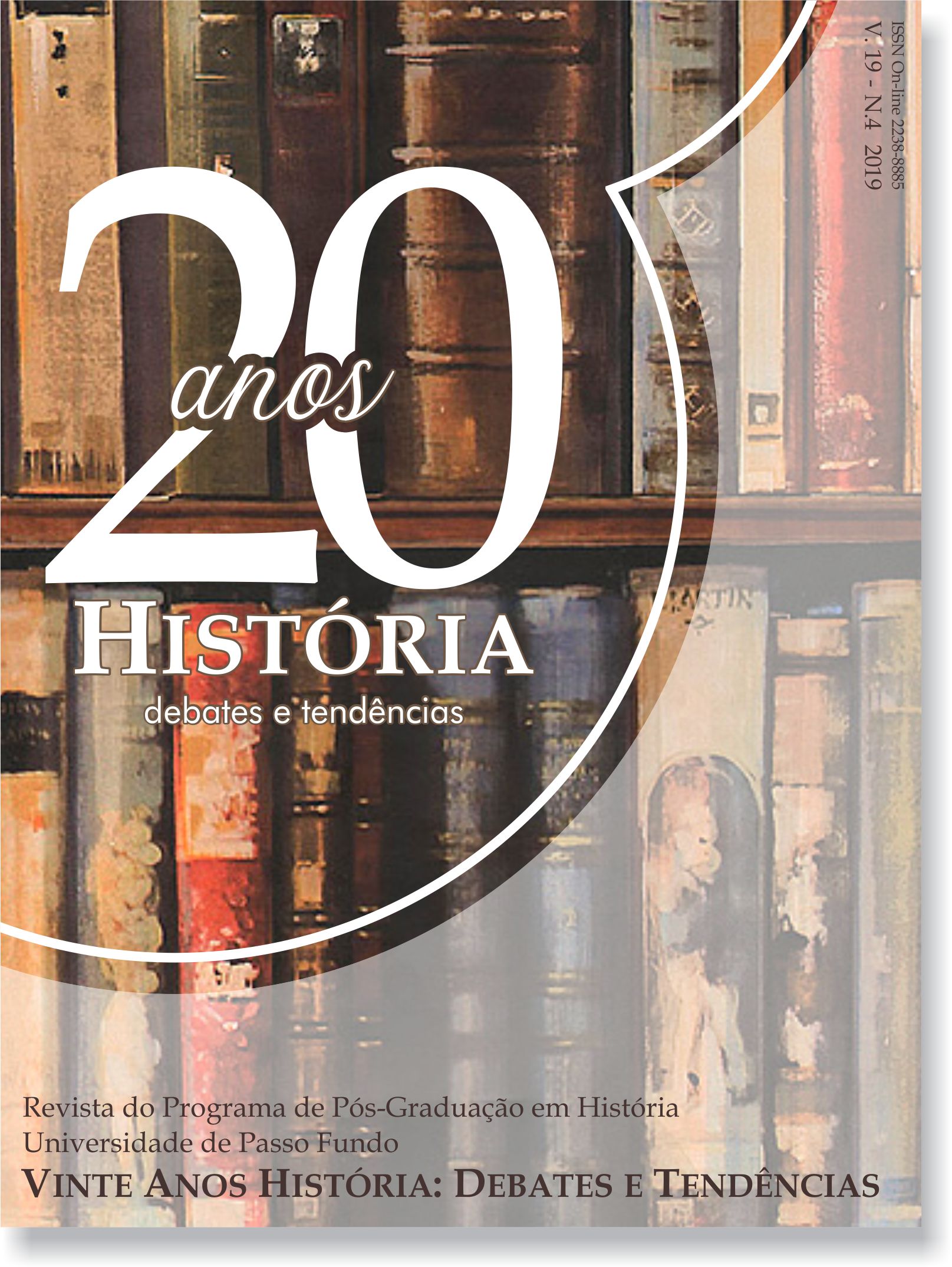“Red Fascists”: alemães antinazistas sob a suspeição do FBI
DOI:
https://doi.org/10.5335/hdtv.19n.4.10491Palavras-chave:
Antinazismo, Exílio, FBIResumo
Desde a ascensão de Adolf Hitler na Alemanha em 1933 alemães opositores ao nazismo buscaram exílio no continente americano, formando complexos movimentos políticos em todo o continente americano. A presença do Free German Movement e do Council for a Democratic German em Los Angeles ligou alerta nas autoridades norte-americanas, principalmente pelos indícios de ligações desses grupos com o comunismo e suas relações com movimentos políticos na América Latina. O objetivo deste trabalho é analisar a existência dos movimentos políticos antinazistas de fala alemã e a atuação do Federal Bureau of Investigation (FBI) nas investigações destes grupos na Califórnia e ao sul da fronteira dos Estados Unidos no contexto da Segunda Guerra Mundial.
Downloads
Os dados de download ainda não estão disponíveis.
Referências
BAHR, Ehrhard. Weimar on the Pacific: German Exile Culture in Los Angeles and the Crisis of the Modernism. University of California Press, 2008.
BEEZLEY, William. The Oxford History of Mexico. United Kingdom: Oxford University Press. 2010.
FOLSOM, Franklin. Days of Anger, Days of Hope: A Memoir of the League of American Writers, 1937–1942. Niwot, CO: University Press of Colorado, 1994.
HUGGINS, Martha K. Polícia e Política: relações Estados Unidos/América Latina. São Paulo: Cortez, 1998.
OCHOA, Maria Clotilde Rivera. Estudio de la revista "Freies Deutschland", organo de difusion del movimiento "Alemania libre" en Mexico: 1941 – 1946. Inst. de Investigaciones Interculturales Germano-Mexicanas, 1995.
ROSS, Steven J. Hitler in Los Angeles: How Jews failed Nazi plots against Hollywood and America. Los Angeles: Bloomsbury, 2018.
SEIGEL, Micol. Beyond the Compare: Comparative Method after Transnational turn. Radical History Review, 2005.
STEPHAN, Alexander. Communazis: FBI surveillance of German Emigré writers. Yale University: 2000.
WEINSTEIN, Barbara. Pensando a história fora da nação: a historiografia da América Latina e o viés transnacional. Revista Eletrônica da ANPHLAC, n.14, p. 9-36, jan./jun. 2013.
BEEZLEY, William. The Oxford History of Mexico. United Kingdom: Oxford University Press. 2010.
FOLSOM, Franklin. Days of Anger, Days of Hope: A Memoir of the League of American Writers, 1937–1942. Niwot, CO: University Press of Colorado, 1994.
HUGGINS, Martha K. Polícia e Política: relações Estados Unidos/América Latina. São Paulo: Cortez, 1998.
OCHOA, Maria Clotilde Rivera. Estudio de la revista "Freies Deutschland", organo de difusion del movimiento "Alemania libre" en Mexico: 1941 – 1946. Inst. de Investigaciones Interculturales Germano-Mexicanas, 1995.
ROSS, Steven J. Hitler in Los Angeles: How Jews failed Nazi plots against Hollywood and America. Los Angeles: Bloomsbury, 2018.
SEIGEL, Micol. Beyond the Compare: Comparative Method after Transnational turn. Radical History Review, 2005.
STEPHAN, Alexander. Communazis: FBI surveillance of German Emigré writers. Yale University: 2000.
WEINSTEIN, Barbara. Pensando a história fora da nação: a historiografia da América Latina e o viés transnacional. Revista Eletrônica da ANPHLAC, n.14, p. 9-36, jan./jun. 2013.
Downloads
Publicado
2019-12-23
Edição
Seção
Dossiê
Licença
Authors who publish in this journal agree to the following terms: Authors retain the copyright and grant the journal the right of first publication, with the work simultaneously licensed under the Creative Commons Attribution License which allows the sharing of work with acknowledgment of authorship and initial publication in this journal. Authors are authorized to take additional contracts separately, for non-exclusive distribution of the version of the work published in this journal (eg, publish in institutional repository or as a book chapter), with acknowledgment of authorship and initial publication in this journal. Authors are allowed and encouraged to publish and distribute their work online (eg in institutional repositories or on their personal page) at any point before or during the editorial process, as this can generate productive changes as well as increase the impact and the citation of the published work (See The Effect of Free Access).Como Citar
“Red Fascists”: alemães antinazistas sob a suspeição do FBI. (2019). Revista História: Debates E Tendências, 19(4), 659-665. https://doi.org/10.5335/hdtv.19n.4.10491






